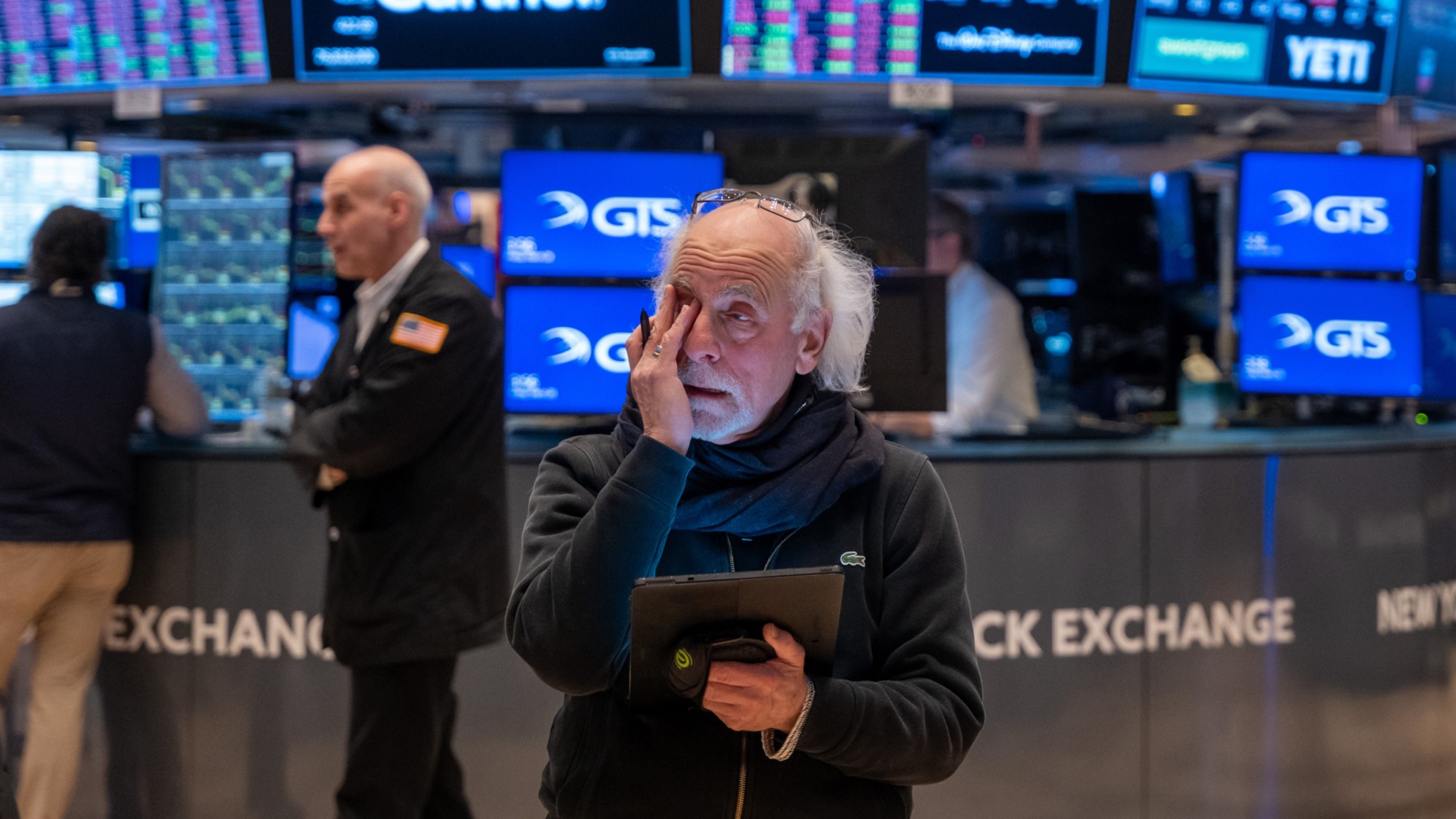Are free trade zones and alliances the answer to Trump's tariffs?
Temptation is to retaliate with trade barriers but most agree nations should focus on targeted trade pacts and strengthening cooperation

A free daily email with the biggest news stories of the day – and the best features from TheWeek.com
You are now subscribed
Your newsletter sign-up was successful
The idea that economic openness and trade could "foster peace and stability reigned supreme" for decades, said law and economics professor Armin Steinbach on The Conversation.
But Russia's invasion of Ukraine "shattered this way of thinking". New free trade agreements are far less frequent, while "protectionist measures have proliferated".
And this week Donald Trump announced the biggest break in US trade policy in more than a century. The president's universal baseline tariff of 10% on all imported goods to the US, and much higher "reciprocal" rates for nations perceived to have harmed America with their trade deficits, increased the US's effective tariff rate to its highest in more than 100 years.
The Week
Escape your echo chamber. Get the facts behind the news, plus analysis from multiple perspectives.

Sign up for The Week's Free Newsletters
From our morning news briefing to a weekly Good News Newsletter, get the best of The Week delivered directly to your inbox.
From our morning news briefing to a weekly Good News Newsletter, get the best of The Week delivered directly to your inbox.
"Not since the disastrous Smoot-Hawley tariffs of 1930, which deepened the Great Depression, has America resorted to such self-defeating fortress economics," said The Times. But the tariffs threaten damage "far beyond her shores".
What did the commentators say?
Trump's so-called "Liberation Day" – a "catalogue of foolishness" fuelled by his "delusions" – heralds the US's "total abandonment of the world trading order and embrace of protectionism", said The Economist. Now, the question for countries "reeling from the president's mindless vandalism" is how to "limit the damage".
The EU has already threatened reciprocal tariffs. But trade barriers "harm those who put them up", and are more likely to cause Trump to "double down than retreat". They could make things worse – "possibly catastrophically so": a spiralling tit-for-tat trade war. Instead, governments should "focus on increasing trade flows among themselves".
America does not dominate trade: its share of global demand for imports is only 15%. The EU, the 12 members of the Comprehensive and Progressive Agreement for Trans-Pacific Partnership (CPTPP), South Korea, and small open economies like Norway, account for 34%. The EU should "overcome its aversion to big trade pacts and sign up to the CPTPP".
A free daily email with the biggest news stories of the day – and the best features from TheWeek.com
But last night Trump said he would come after the EU and Canada (a CPTPP member) with "far larger" tariffs if they worked together. This opened "a new front in the unfolding trade war", said The New York Times. The US is "by far" Europe's biggest trading partner and the prospect of even more tariffs left the EU "scrambling to negotiate". That said, the fact that the Trump administration has shown "little appetite to strike a deal so far" has left Europeans with no choice but to seek "new alliances and deepen existing trading relationships".
The US is also "far and away" Canada's biggest export market, said Jay Goldberg in the Toronto Sun. Canada needs "a new economic plan" – and quickly. One idea, long talked about, is a free-movement, free-trade zone between Canada, Australia, New Zealand and the UK: "CANZUK".
All these "like-minded" countries would "benefit from closer economic cooperation", given their "historic ties" as members of the Commonwealth and their common language. CANZUK would "offer jet fuel to help turbocharge economic growth at a time when all four countries, and particularly Canada, badly need it".
In a sense, Trump has already "achieved his first global peace deal", said Ambrose Evans-Pritchard in The Telegraph. "China, Japan and South Korea have kissed and made up after years of trade quarrels."
The three nations' trade ministers met last week for the first economic discussions since 2019 and agreed to "cooperate closely". They held hands in a "collective gesture of Asian defiance", and agreed to work towards a future free trade deal and "flesh out the Regional Comprehensive Economic Partnership": on paper, the world's largest trade pact.
China also "launched a charm offensive to woo European officials", suggesting the two blocs team up against Trump. A possible Sino-European trade truce was "unthinkable just weeks ago", with "daggers drawn" over EU tariffs on Chinese EVs. "But they both have a bigger wolf to contend with today."
What next?
Ultimately, the "golden age of global free trade" is over – but that doesn't spell disaster, said Steinbach on The Conversation. In a world of geopolitical conflict, security concerns, not liberalisation, are reshaping trade policy. This requires "shifting away from fragile multilateralism towards more selective, regional alliances". The EU's strengthening ties with South America's Mercosur bloc, a group of countries "reliant on open trade", exemplify this approach.
The EU-Mercosur deal, agreed in December after 20 years of negotiations, aims to create "one of the largest free trade zones in the world", said Al Jazeera, comprising more than 700 million people and "nearly 25% of global gross domestic product".
France was leading a group of EU states objecting to the deal, amid widespread opposition from European farmers. But in light of Trump's tariffs, France today organised a meeting to discuss the deal. "In the current geopolitical context, all participants agree on how important it is to diversify trade partnerships," a spokesperson for Benjamin Haddad, France's minister for Europe, told Reuters.
There is no "avoiding the havoc" Trump has created, said The Economist – but that does not mean his "foolishness" will triumph.
Harriet Marsden is a senior staff writer and podcast panellist for The Week, covering world news and writing the weekly Global Digest newsletter. Before joining the site in 2023, she was a freelance journalist for seven years, working for The Guardian, The Times and The Independent among others, and regularly appearing on radio shows. In 2021, she was awarded the “journalist-at-large” fellowship by the Local Trust charity, and spent a year travelling independently to some of England’s most deprived areas to write about community activism. She has a master’s in international journalism from City University, and has also worked in Bolivia, Colombia and Spain.
-
 Political cartoons for February 15
Political cartoons for February 15Cartoons Sunday's political cartoons include political ventriloquism, Europe in the middle, and more
-
 The broken water companies failing England and Wales
The broken water companies failing England and WalesExplainer With rising bills, deteriorating river health and a lack of investment, regulators face an uphill battle to stabilise the industry
-
 A thrilling foodie city in northern Japan
A thrilling foodie city in northern JapanThe Week Recommends The food scene here is ‘unspoilt’ and ‘fun’
-
 Currencies: Why Trump wants a weak dollar
Currencies: Why Trump wants a weak dollarFeature The dollar has fallen 12% since Trump took office
-
 TikTok: New owners, same risks
TikTok: New owners, same risksFeature What are Larry Ellison’s plans for TikTok US?
-
 Trump wants a weaker dollar, but economists aren’t so sure
Trump wants a weaker dollar, but economists aren’t so sureTalking Points A weaker dollar can make imports more expensive but also boost gold
-
 Why quitting your job is so difficult in Japan
Why quitting your job is so difficult in JapanUnder the Radar Reluctance to change job and rise of ‘proxy quitters’ is a reaction to Japan’s ‘rigid’ labour market – but there are signs of change
-
 Leadership: A conspicuous silence from CEOs
Leadership: A conspicuous silence from CEOsFeature CEOs were more vocal during Trump’s first term
-
 The end for central bank independence?
The end for central bank independence?The Explainer Trump’s war on the US Federal Reserve comes at a moment of global weakening in central bank authority
-
 Why Saudi Arabia is muscling in on the world of anime
Why Saudi Arabia is muscling in on the world of animeUnder the Radar The anime industry is the latest focus of the kingdom’s ‘soft power’ portfolio
-
 Can Trump make single-family homes affordable by banning big investors?
Can Trump make single-family homes affordable by banning big investors?Talking Points Wall Street takes the blame